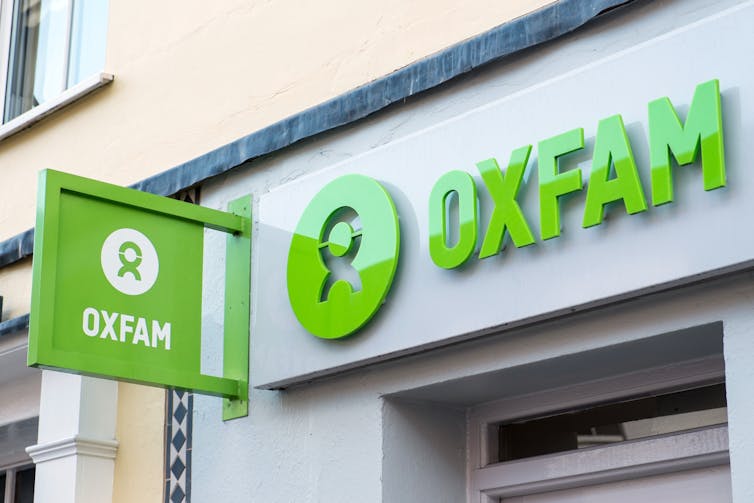Media
Reporting #AidToo: how social media spaces empowered women in the 2018 charity scandals – The Conversation UK
A recent report from the UK’s Charity Commission into allegations of sexual harassment by senior staff at the charity Save the Children UK is incredibly damaging. The report concluded that the charity failed the women who reported abuse as well as its staff and the wider public.
Save the Children’s handling of such matters was so poor in some respects that it amounted to mismanagement, the report concluded. The issue the Charity Commission examined related to allegations of inappropriate behaviour and sexual harassment that came to light in 2018 about the charity’s former chief executive, Justin Forsyth, and former director of policy, Brendan Cox.
But the complaints against Forsyth went back as far as 2012, and 2015 for Cox. So why the delay in reporting on these and how did the matter finally come to widespread public attention?
Journalists such as Sean O’Neill, chief reporter of The Times, Simon Walters, political editor of the Mail on Sunday, and Manveen Rana of the BBC played a crucial role in bringing these problems to public attention. But also important was the way women working in the aid sector used social media to support each other and ensure justice was done.
Academics Chris Greer and Eugene McLaughlin call this process intermediatisation – “the viral interaction within and between corporate and social media”. They describe scandal as a process with stages – latency, activation, reaction, amplification and accountability – to explain how a story can move from being an “open secret” to publication.
Having researched the #AidToo scandals that engulfed Save the Children UK and also Oxfam GB in February 2018, I believe it is clear that the scandal conforms to this model.
When the Oxfam scandal concerning abuse of the charity’s beneficiaries in Haiti first came to light in 2011, it received no more than a handful of short news stories. Brendan Cox’s departure from Save the Children UK merited a piece in the Mail on Sunday but little follow-up from other nationals.


D K Grove via Shutterstock
But this did not mean that women were not using different media spaces to support each other. Women from aid agencies used WhatsApp groups to share information and support as well as closed Facebook groups. The “Fifty Shades of Aid” Facebook group launched in 2015 when its founder wrote an article for The Guardian’s Secret Aid Worker series about “flaky aid boys and comedy dating stories” in the humanitarian world.
The group was originally full of lighthearted stories until one poster shared a story of being harassed and abused. In solidarity many started to share similar stories – 800 people joined the group in one week.
Meanwhile, the Humanitarian Women’s Network was set up by aid workers working on the Ebola response in Guinea in Dec 2015 when they realised they had all experienced some form of discrimination and abuse. They launched an influential survey to which more than 1,000 responded, as well as a closed Facebook group for women. So, while the stories around harassment of aid workers were limited in the mainstream media, online spaces were keenly debating the issue.
Hashtag heroism
The #MeToo campaign was also a very important moment. When that hashtag started circulating in October 2017 as the revelations around Harvey Weinstein emerged, many of those I spoke to said it gave those in the aid world considering whether to tell their stories about abuse more courage to do so. The hashtag #AidToo emerged, and the humanitarian website Devex hosted a tweetchat on Dec 6 2017 to discuss this issue.
But the big revelations came two months later. O’Neill’s award-winning investigation about abuse by Oxfam in Haiti was published in The Times in February 2018 and was followed by stories about Save the Children UK from Walters and Rana. These reports were undoubtedly hugely important in influencing the public debate. Donors started to desert the agencies, senior staff resigned and the Charity Commission and UK parliament’s international development committee launched investigations.
But, as the Charity Commission outlines in its report, Save the Children UK’s attitude to the media reports was “unduly defensive”. In fact the charity spent more than £100,000 on lawyers in order to try to shut down media reporting. But the result was that aid workers became more – not less – willing to speak, which meant the story would not go away.
Finding a safe space
In particular, the campaigners Alexia Pepper de Caires and Shaista Aziz led the formation of the intersectional feminist platform NGO Safe Space, which gathered testimonies on sexual harassment, abuse and exploitation, and spoke out in many arenas about the issue. Meanwhile Changing Aid set up an online open letter which was signed by more than 1,500 women aid workers calling for change and reform in the patriarchal structures of the aid world.
Others realised that social media was a potent way to get the message across; as one interviewee told me:
Every time I say something on Twitter … the Charity Commission listen; if I write to them on email, they don’t do anything.
So while mainstream media was clearly hugely influential in shining a light on abuse and harassment by Save the Children UK and Oxfam staff, it’s likely that the use of social media platforms, such as WhatsApp and closed Facebook groups, allowed women to connect with other women discussing their experiences, form new media spaces and strategise around how to liaise with mainstream media.
This meant that the scandals were not limited to the usual timescale that all mainstream media operate under but the pressure on aid agencies was kept up, and afforded women a voice that they felt they had been denied in previous times.
Media
Lawmakers pan Ben Gvir for ‘unforgivable’ tweet on alleged Israeli strike on Iran – The Times of Israel


Italian FM says Israel gave US ‘last minute’ warning about drone attack on Iran
CAPRI, Italy (AP) — The United States told the Group of Seven foreign ministers that it received “last minute” information from Israel about a drone action in Iran early this morning, Italy’s foreign minister says.
Italian Foreign Minister Antonio Tajani, who chaired the meeting of ministers of industrialized countries, says the United States provided the information at session this morning that was changed at the last minute to address the suspected attack.
Tajani says the US informed the G7 ministers that it had been “informed at the last minute” by Israel about the drones. “But there was no sharing of the attack by the US. It was a mere information.”
Early Friday, Iran fired air defenses at a major air base and a nuclear site near the central city of Isfahan after spotting drones, part of an apparent Israeli attack in retaliation for Tehran’s unprecedented drone-and-missile assault on the country last weekend.
In a communique following the three-day meeting, the ministers urged the parties “to prevent further escalation.”
Media
DJT Stock Rises. Trump Media CEO Alleges Potential Market Manipulation. – Barron's
[unable to retrieve full-text content]
DJT Stock Rises. Trump Media CEO Alleges Potential Market Manipulation. Barron’s





Source link
Media
DJT Stock Rises. Trump Media CEO Alleges Potential Market Manipulation. – Barron's
[unable to retrieve full-text content]
DJT Stock Rises. Trump Media CEO Alleges Potential Market Manipulation. Barron’s





Source link
-
Media7 hours ago
DJT Stock Rises. Trump Media CEO Alleges Potential Market Manipulation. – Barron's
-
Media9 hours ago
Trump Media alerts Nasdaq to potential market manipulation from 'naked' short selling of DJT stock – CNBC
-
Investment8 hours ago
Private equity gears up for potential National Football League investments – Financial Times
-



 Health22 hours ago
Health22 hours agoType 2 diabetes is not one-size-fits-all: Subtypes affect complications and treatment options – The Conversation
-
Media21 hours ago
DJT Stock Jumps. The Truth Social Owner Is Showing Stockholders How to Block Short Sellers. – Barron's
-



 Sports24 hours ago
Sports24 hours agoHow the NHL moved the Arizona Coyotes to Salt Lake City – Sportsnet.ca
-
Art23 hours ago
Art in Bloom returns – CTV News Winnipeg
-
Business21 hours ago
Tofino, Pemberton among communities opting in to B.C.'s new short-term rental restrictions – Vancouver Sun



